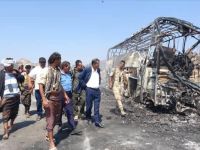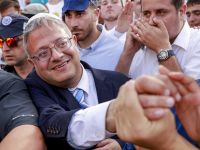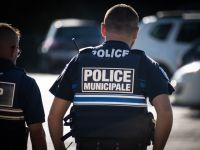Former Libyan double agent Abdul Majid Giaka was back on the witness stand Wednesday at the trial of two compatriots accused of the 1988 Lockerbie bombing, reported AFP.
Majid was being cross-examined by lawyers for Abdel Basset Ali al-Megrahi and Al-Amin Khalifa Fhimah who sought to cast doubt on the credibility of the one-time Libyan spy turned CIA informer, said the agency.
On his first day in court Tuesday, Majid claimed he saw the two accused in Malta in December 1988 arriving from Tripoli with a brownish Samsonite suitcase, said AFP.
Majid also told the special Scottish court sitting in the Netherlands that Fhimah had shown him explosives kept in a locked drawer in the offices of Libyan Arab Airlines at Malta's international airport.
Speaking in Arabic from behind a screen and with his voice distorted to protect his identity, Giaka told the court he was recruited to the JSO (the Libyan security service) after graduating from university, reported the BBC.online.
He told prosecutor Alastair Campbell that he started working for the Libyan security service in 1984 and in 1986, he moved to become assistant station manager in Malta, added the BBC.
In the murder indictment against them, Megrahi and Fhimah allegedly packed Semtex plastic explosives and a timer into a Toshiba radio cassette recorder that was then concealed in a Samsonite suitcase, added AFP.
That suitcase was then, it is alleged, put onto a flight out of Malta, tagged for transfer in London onto Pan American Flight 103 on December 21, 1988.
The New York-bound Boeing 747 later blew up over Lockerbie, southern Scotland, killing all 259 on board plus 11 others on the ground.
Defense lawyer Bill Taylor QC complained that much of what he had to say was "mere tittle-tattle and gossip," and reminded the court that hearsay can be inadmissible in a Scottish murder trial, according to the BBC.
Giaka's appearance in court came after weeks of wrangling between the prosecution and defense.
At the heart of the objections has been the issue of the availability of notes of interviews held between Giaka and his CIA handlers in America, said the BBC.
These papers have been trickling out with varying degrees of censorship.
Meanwhile, it has been revealed that very few relatives of the victims are watching the trial on closed circuit TV at four sites in the US and Britain.
Virtually no one has been to the site in Dumfries, while even in New York there is usually only eight to 10 people watching, said the BBC - (Several Sources)
© 2000 Al Bawaba (www.albawaba.com)







